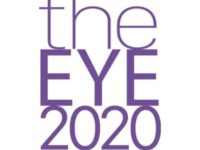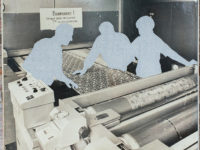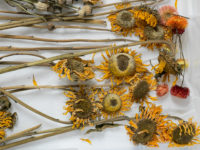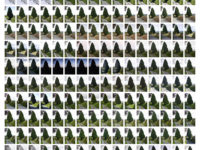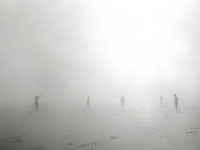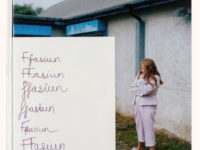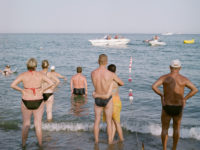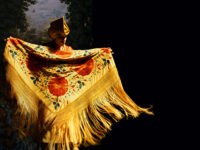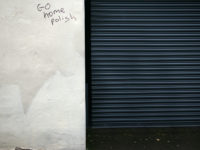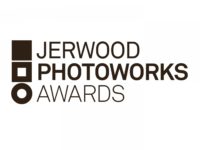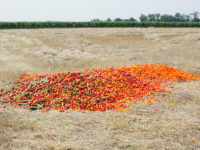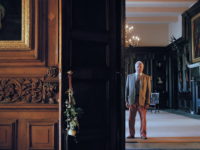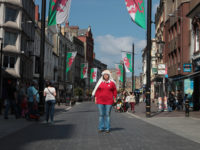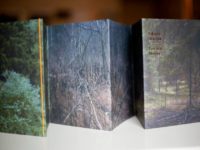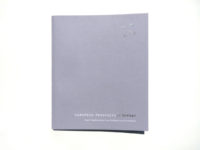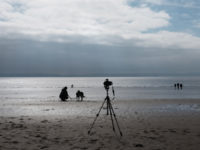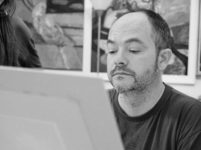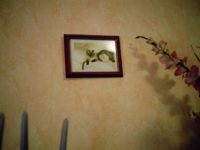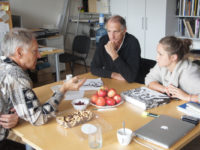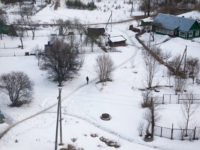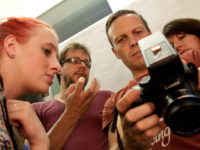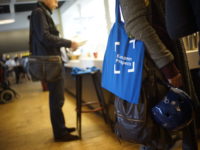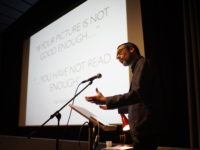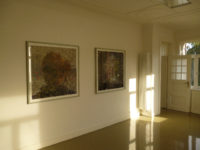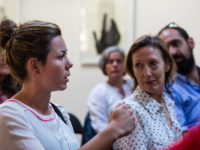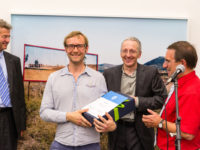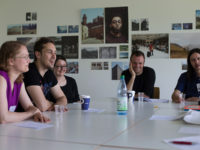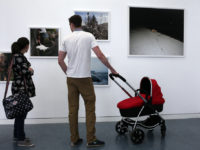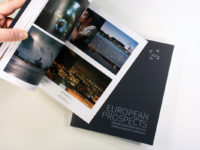A Woman's Work: Symposium
Symposium: A Woman’s Work
Thursday 04 April 2019
Diffusion: Cardiff International Festival of Photography Sound+Vision/Creative Europe
Canolfan y Mileniwm / Wales Millennium Centre
On Thursday 4 April 2019, a symposium of panels and presentations were held as part of Diffusion: Cardiff International Festival of Photography – Sound+Vision, featuring some of the most visible and exciting female leaders in the audiovisual industries in Wales and beyond. The picture that emerged was of a growing, collegial and supportive network of women leaders who are making Welsh and European arts a more equal and thriving ecosystem. The sense of Cardiff in particular as a kind of village, in which networks are inevitably and organically forged, was strongly felt across many of the talks and panel discussions. The symposium’s setting, within an immersive 360-degree dome at the iconic Wales Millennium Centre installed by 4pi Productions for Diffusion festival, contributed to the sense of excitement, making this a hugely memorable event for all of its packed audience.
Ffotogallery and Diffusion Director, David Drake, delivered a stirring introduction. The event’s intention, he stated, was not to discuss “women in photography” – but about possible roles lens-based media might play in “representing women at work, in the light the light of the changing landscape of work in Europe”. He remarked on the “chronic underrepresentation of women in work” to this day, highlighting statistics exposing the gender disparities which persist across the audiovisual arts, and in the burgeoning tech industries in particular where women hold roles in around 30% of the available positions and less than 10% of the highest paid jobs.
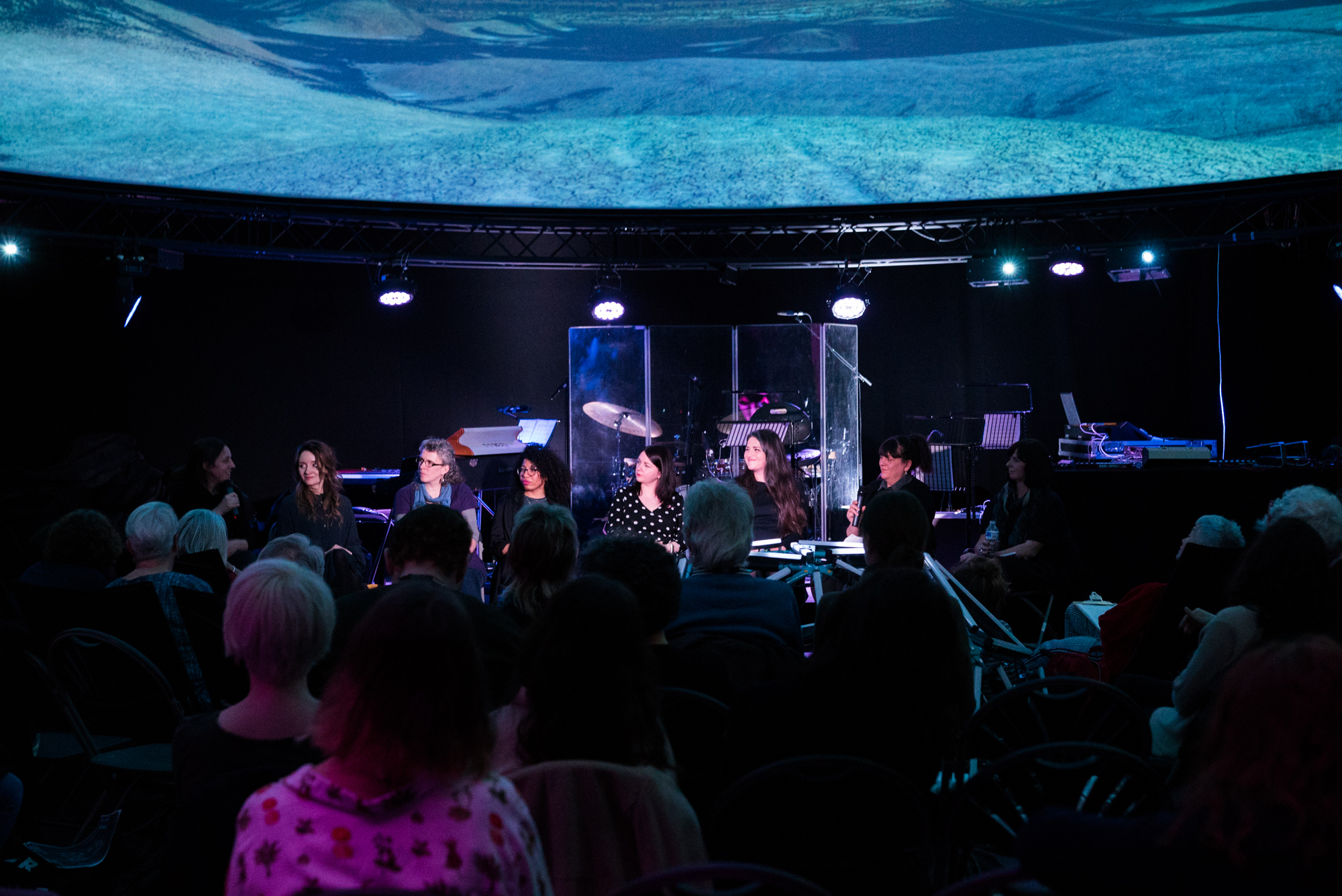
The festival’s Europeanness was a key part of Drake’s message. “To be a part of Europe isn’t just about institutional relationships,” Drake stated. “It’s about being part of a dynamic cultural scene, that’s changing and shifting.” Referring to the kinds of conversations the festival was hoping to facilitate at this key juncture in the history of Wales, the UK and Europe, Drake argued that “you can begin to form a more coherent idea of contemporary Europe from a mosaic of individual projects and discussions.”
The day’s first panel was one such conversation, between Celia Jackson, the founder of the Cardiff-based collective of women photographers, Phrame, launching at Diffusion Festival, and the Finnish curatorial duo, Whack’n’Bite. Jackson explained how she perceived Phrame as essentially a philanthropic project and harked back to the new collective’s first-ever meeting, in a boardroom at the National Museum in Cardiff on September 2018. Everyone present was highly aware, she says, of the presence of the Museum’s previous directors, who were all male, watching over them. In spite, or perhaps partly because of this daunting setting, “the energy, dynamism and positivity in the room” made a lasting impression. What characterises Phrame is a sense of collective encouragement, listening and respect – the collective quickly realised that between its members, they had all the skills they needed to thrive.

Tuula Alajoki and Johanna Havimaki of Whack’n’Bite followed with a presentation emphasising the dynamism which can occur from a marriage of kindness, sisterhood and ambition. Their playful presentation was guided by the assertions, “Art is underestimated in Finnish society. Art is real work, and we should all be paid for that work.” Whack’n’Bite is driven by the idea of curation as “caretaking” rather than “star-making” – according to Tuula and Johanna, “we try to develop constructions that are stable, not building an institution.” The idea of always being “under construction” is important to the collective. However, one of their key messages is that “details matter – and the most important is to be kind with the people you work with,” a note which emerged as a consistent thread throughout the symposium.
“The first seeds of Phrame,” Jackson said, were sewn when a well-known male photographer poked his finger at her and said: “You’re not a photographer; I’ve never heard of you,” Jackson asked the room to consider some big questions, about how can we dismantle structures that enable these dismissals and intimidations.
Diffusion 2019 artists Alina Kisina (Ukraine-British), multimedia artist Janire Najera (Spain) and Cherie Federico, Editor of Aesthetica Magazine (a Diffusion media partner), came next with a series of presentations.
Najera gave background to one of her projects, Atomic Ed, about Ed Grothus, the Manhattan Project and black holes, which included a 2014 Ffotogalley exhibition and a 2018 book. Making full use of the symposium’s unique dome setting, Najera illustrated her presentation with a 360-degree slideshow, making for an intensely immersive artist talk.
Alina Kisina, whose exhibition Children of Vision was part of Diffusion: Sound+Vision, started her presentation by thanking her family, who instilled in her a desire to explore life’s big questions. Alina works with children with impaired vision – focusing on their beauty, playfulness and elegance. She’s also worked with older people, disabled groups and mental health specialists. She emphasised how her practice is driven by the belief that “every person poses a question and an answer at the same time.”
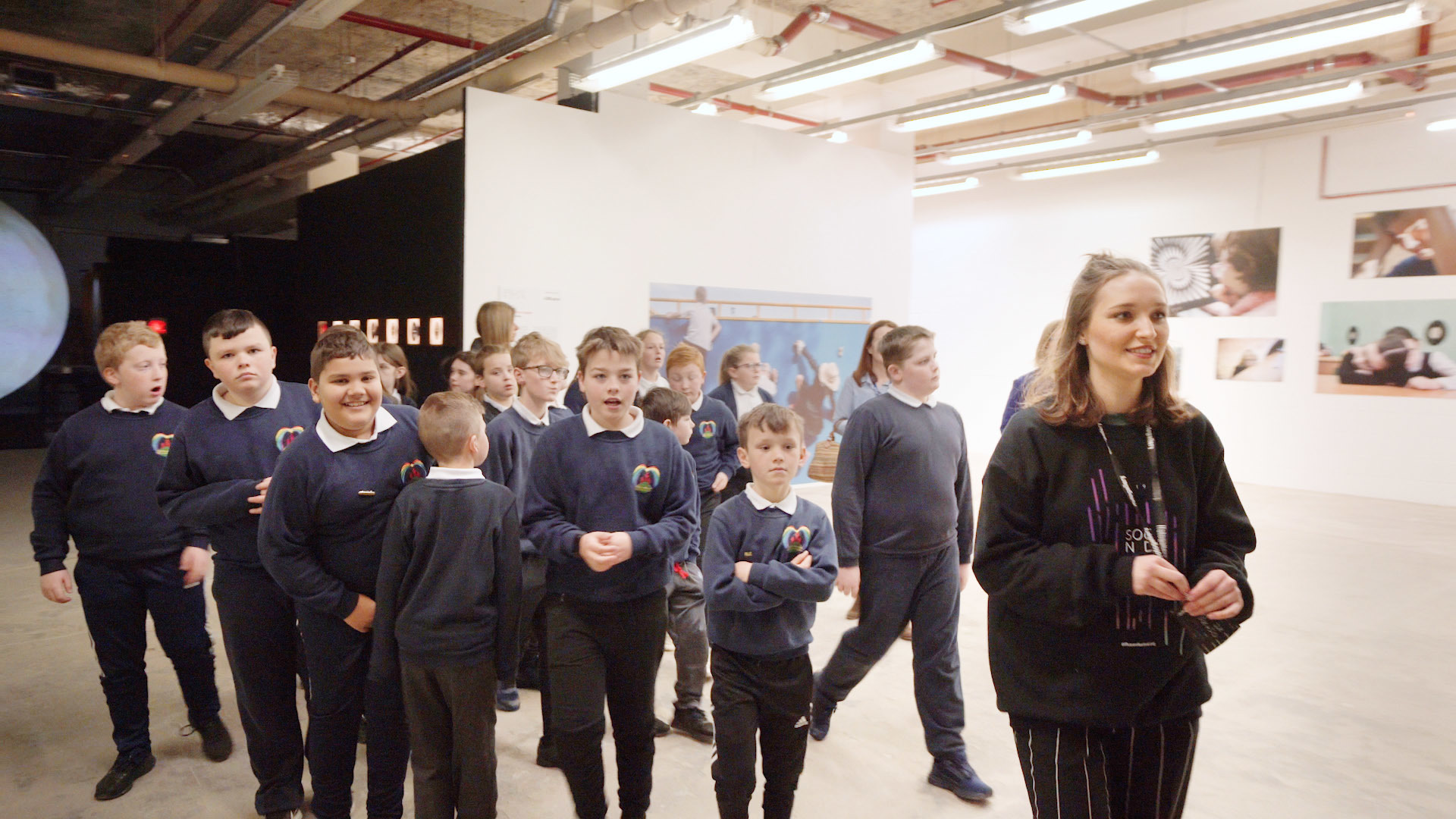
Aesthetica director Federico spoke not from an art practice background but from the fields of curation and publishing. “A magazine,” in her view, “is an experience, a journey, and a discovery.” “Art is a way to convene – like today! – to discuss, and to engage with the world around us,” said Cherie. This is central to the ethos of Aesthetica as an organisation, its Film Festival and world-renowned Art Prize.
This was followed by a panel on cultural leadership with Laura Drane, Hannah Raybould of BAFTA Cymru, SHIFT facilitator Pria Borg-Marks, Melin Edomwonyi, designer and facilitator of Creative Mornings and Kayleigh McLeod of Creative Cardiff; just some of the many, many women leaders in Cardiff’s arts scene.
Laura Drane, chairing the panel, asked the speakers for a summary of their ‘thing’ and to name a woman they’re currently inspired by – Edomwonyi shouted out Meltem Arikan, a Turkish theatre-maker now working in Cardiff exploring issues surrounding migration, identity and persecution.
Someone had told Kayleigh McLeod, when she moved here, “Cardiff’s a village. You’ll get to know people.” All the panellists agreed on the centrality of “Welsh friendliness” to the blossoming of Cardiff’s arts scene, particularly sisterhood and women’s networks. “I feel supported – there is a network,” says McLeod. Hannah added: “try to be an individual in a room and you’ll find your people.”
Also addressed was the need to make events and spaces feel workable for people who might find art spaces less approachable; a vital conversation that’s becoming more prominent in discourses surrounding women in arts, all the panellists agreed. At times, a speaker stated, “passion” can be unwelcome in U.K. arts spaces – an easy way for people to dismiss certain women’s voices. “Never tone yourself down,” said Drane.
Visual media’s power to transmit empathy is its key role today for Najera, closing a final discussion between all the speakers. David Drake returned to close the A Woman’s Work symposium by thanking the speakers and visitors who made this event so inspiring.
Dylan Huw
July 2019

